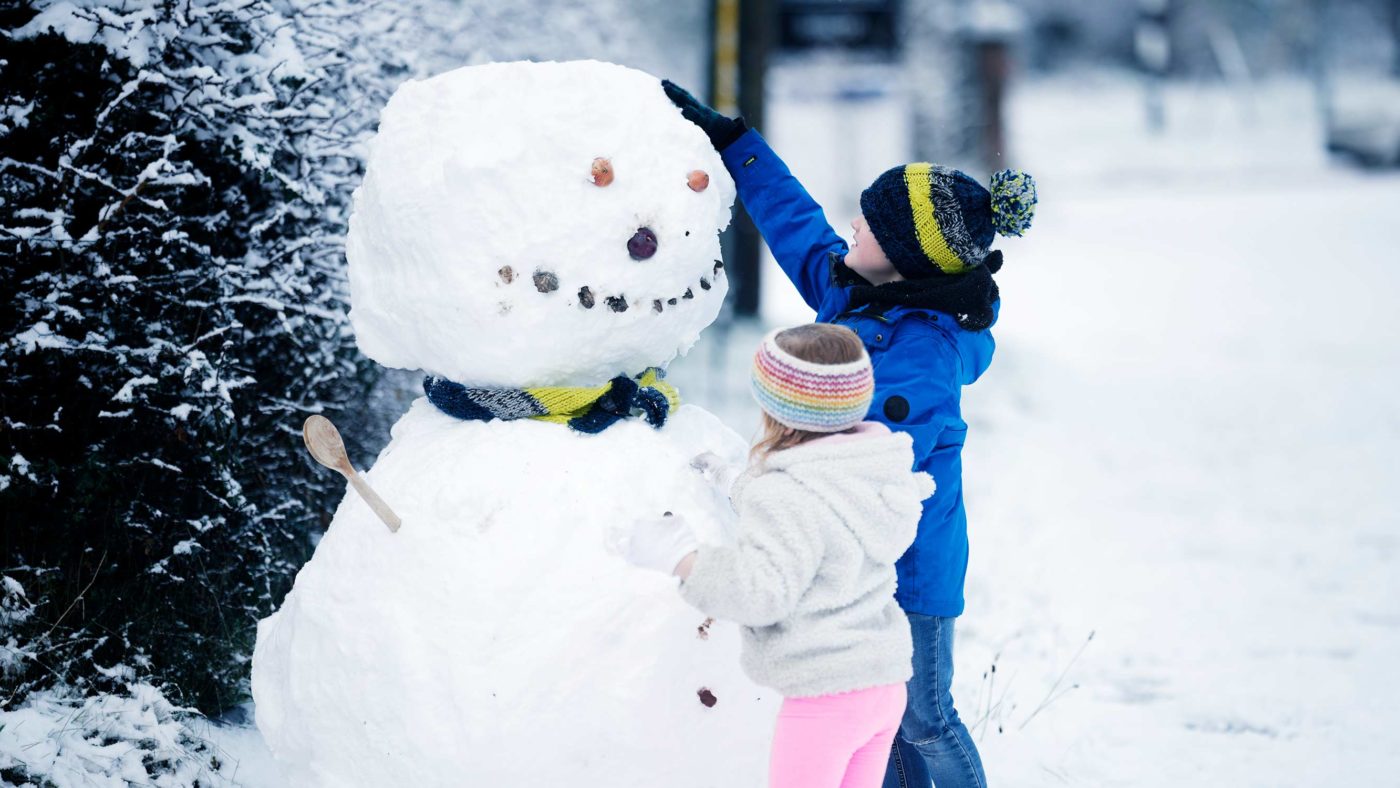Years ago, as the UK braced for a cold snap, my parents rang their local radio station. Couldn’t the weatherman give us some good news for a change, they joked. ‘You’d be surprised,’ came the deadpan reply.'”We get far more complaints when we forecast heat than we do cold.’
If true, then we Brits really do love to whinge. Consider the scorn and recriminations that followed this week’s dusting of snow. Must the weather be so dismal? And why can’t we cope when it is? Why are flights cancelled, rail services delayed, roads clogged and workers trapped at home?
Compelling though the argument that we should spend more on winter preparedness may be, temperatures in most parts of Britain are simply not cold enough, for long enough, to warrant the added investment. We’re in Blighty, not Banff, and we don’t need convoys of snow ploughs traversing the nation for months of the year. Inconvenience is the price we pay for living in a nation where the mercury can hit 21C on Remembrance Sunday and -15C a month later.
But while transport disruption and commuter misery may be an inevitable consequence of snowy weather, school closures are harder to comprehend. Perhaps online learning – the only form of education for months of the Covid pandemic – can lessen the impact of keeping children at home, though it is no substitute for teacher-qualified learning. Maybe the Christmas break is so near that a ‘snow day’ will make little difference. But does a few inches of the white stuff really meet the education department’s criteria of ‘truly exceptional circumstances… when there is no other option’?
Because there are no systematic central records held on how many school days are lost to poor weather each year, it’s difficult to make historical comparisons. But when average temperatures over a three-month period stayed below 0C in the winter of 1962-63, stories emerged of children breaking the ice in school toilets with sticks. Pupils were in the playground up to their knees in snow every day. School trips to London went ahead. If you could sledge, you could school. When temperatures dipped in 2010, historian Peter Hennessy recalled the 1960s as he warned the UK had become a ‘health and safety nation’.
If that was true 12 years ago, it must be gospel now. Last weekend reports emerged of primaries reintroducing bubbles and cancelling nativities due to fears over Strep-A – a disease that can have terrible effects, but ones that are extremely rare. In the summer, some schools closed due to the heatwave. Throughout the pandemic teaching union intransigence deprived millions of pupils their education and condemned them to aching solitude.
This week, snow days have been painted as all excitement and fun, as though kids can’t enjoy them within school grounds. It’s true that teachers often live further from schools than pupils, meaning adverse weather can lead to staffing issues. Some disruption to the typical timetable is expected. But our response only underscores how rigid these institutions have become. Why not have larger class sizes, utilise sports facilities, encourage pupils to play outdoors in the snow?
It may only be a day or two, but put it into recent context. This Covid cohort have already lost up to 5% of their entire time in school; they don’t need to lose any more. For all the promises of school recovery plans, shockingly little has been done to help pupils catch up. The idea that Christmas concerts will be scrapped or children forced to wear face coverings due to scarlet fever is a nonsensical as it is cruel. If the problem is the immunity-deficit, how can the solution to viruses rampantly circulating because kids weren’t allowed to mix be stopping kids from mixing?
We should also take a step back and consider what lessons we are teaching future generations in the name of ‘safety in our community’. Already, Gen Z is feeling disillusioned by intergenerational inequality. They – and their successors – will need resilience in the face of unaffordable house prices and the end of defined benefit and index-linked pensions, in an era where clapping can be triggering and raising your voice can count as ‘bullying’. Perhaps a little more insouciance towards a touch of frost could help. At the very least, it would give radio producers something else to worry about.
Click here to subscribe to our daily briefing – the best pieces from CapX and across the web.
CapX depends on the generosity of its readers. If you value what we do, please consider making a donation.


